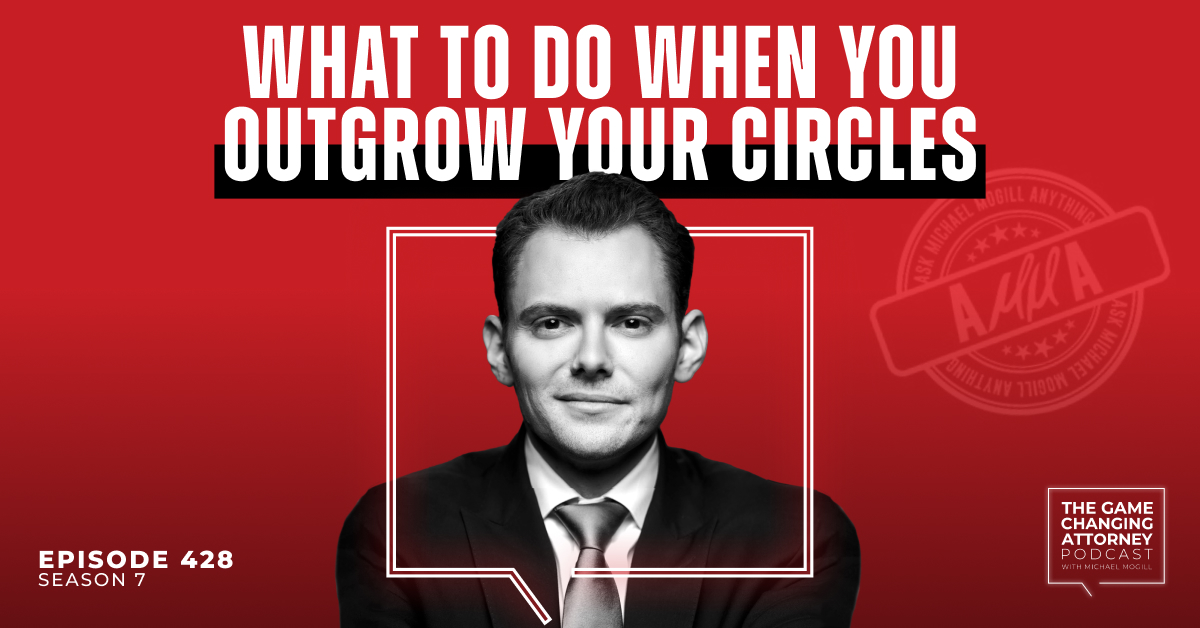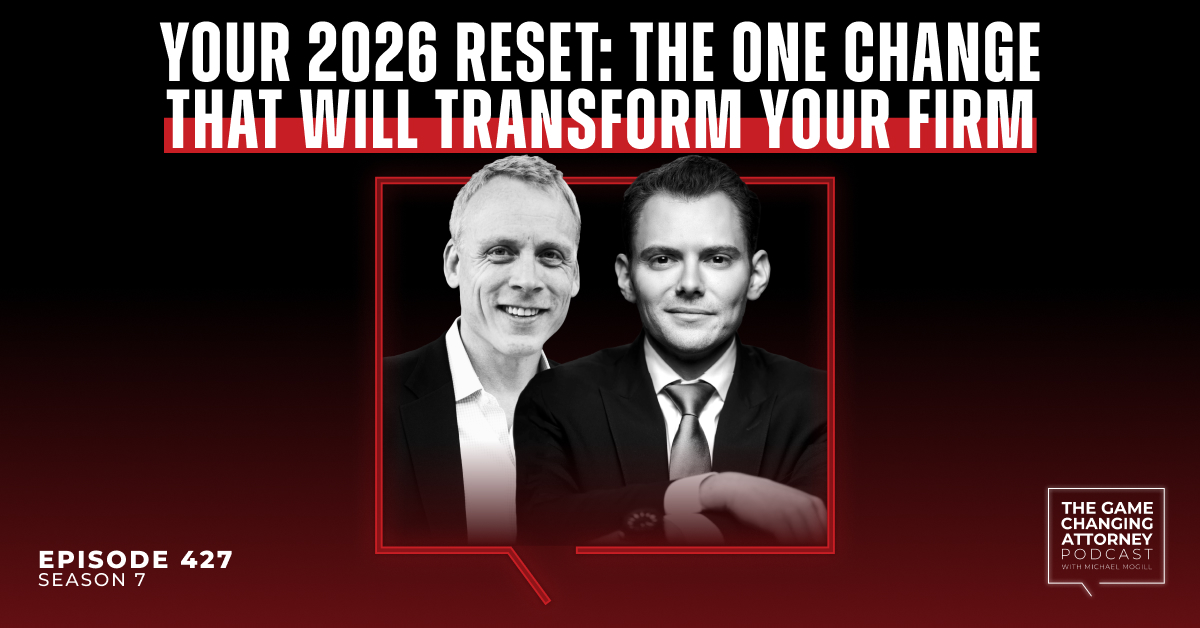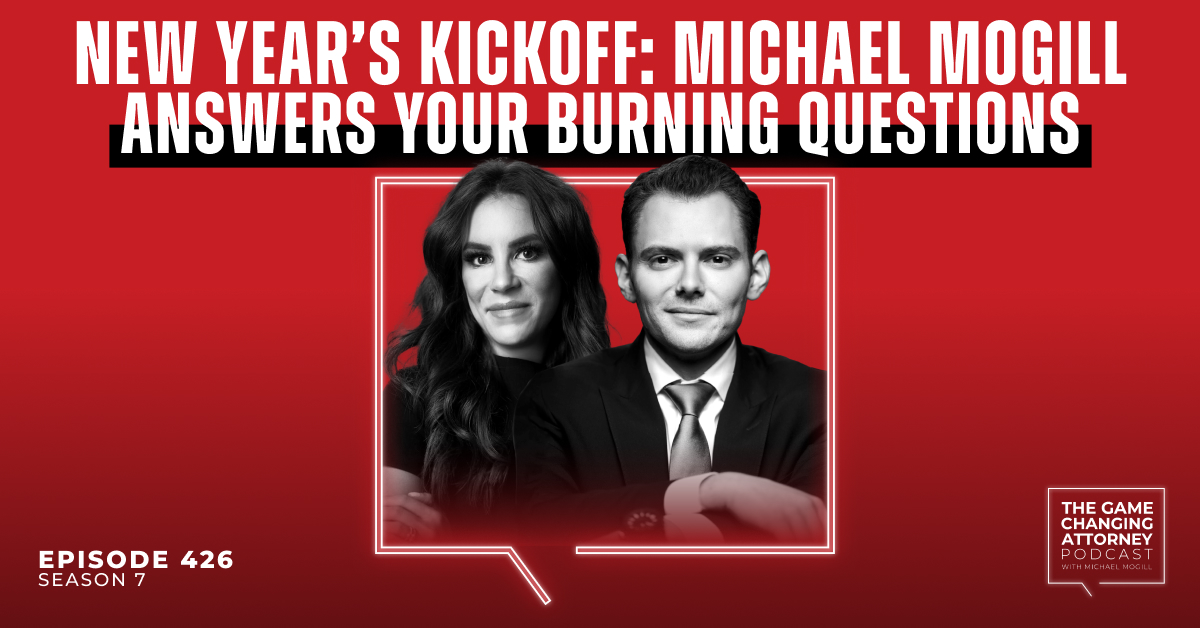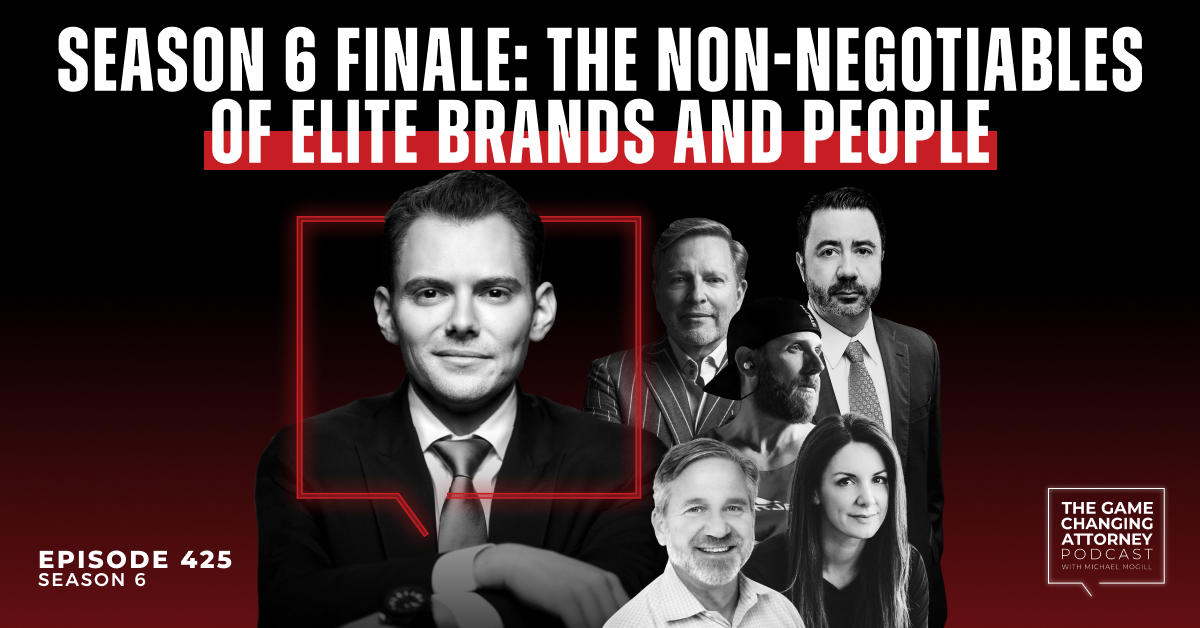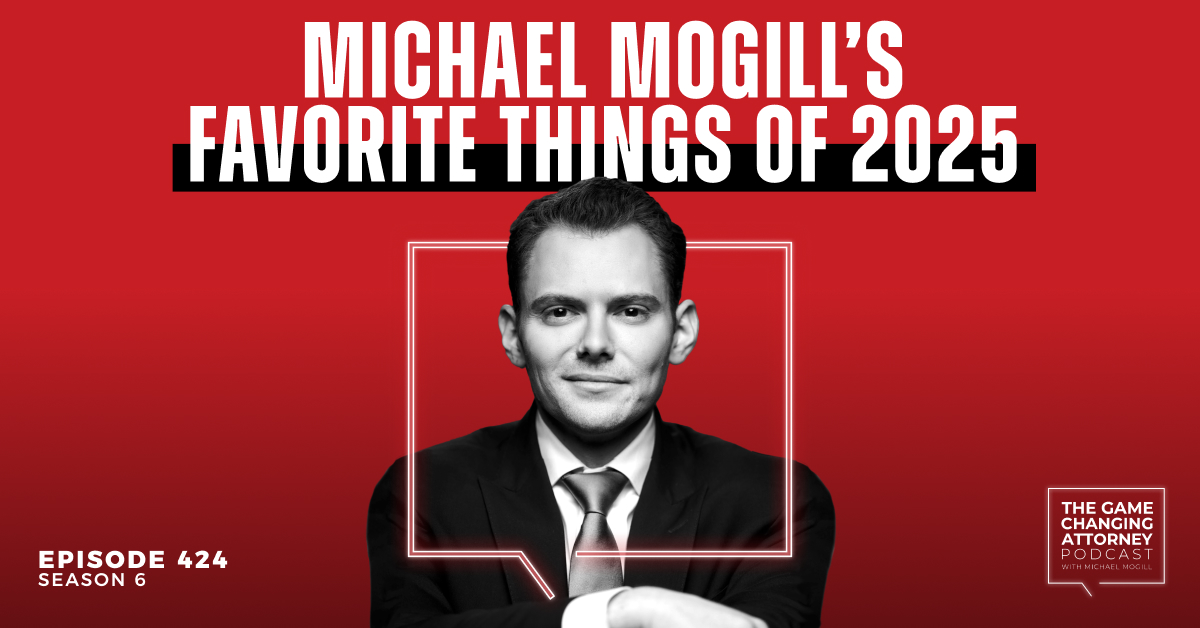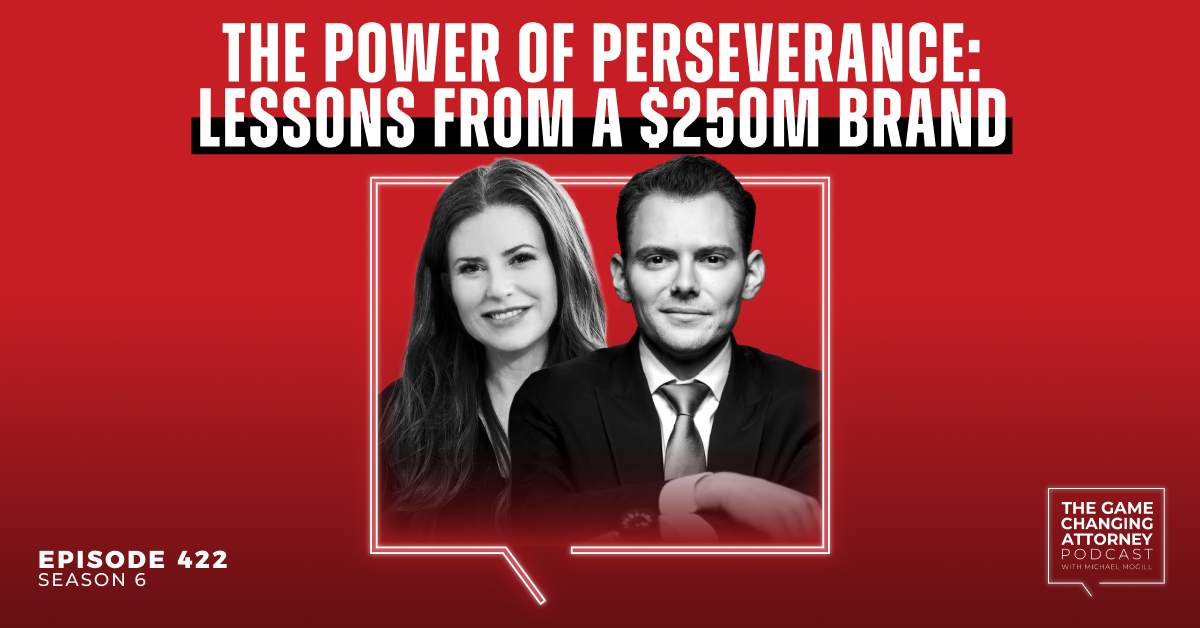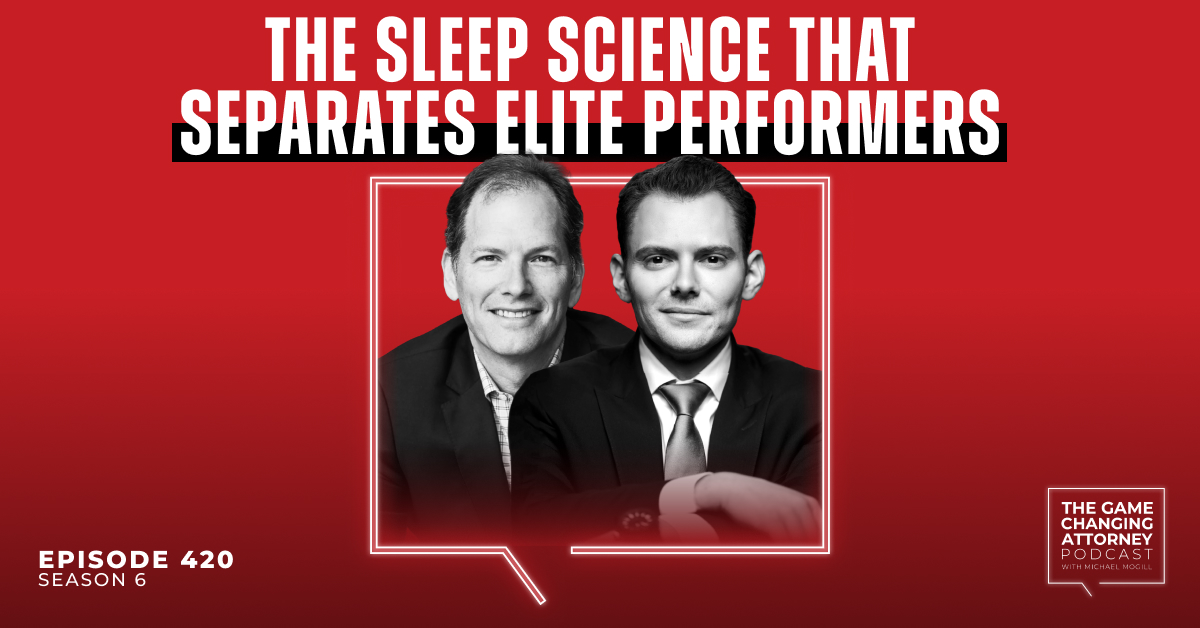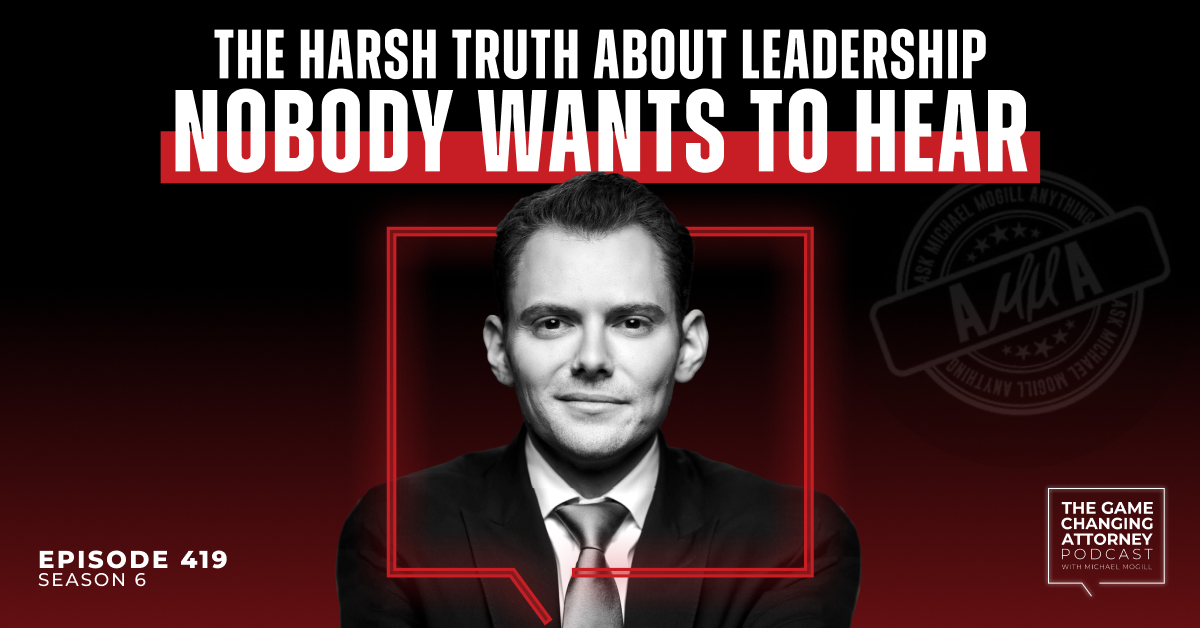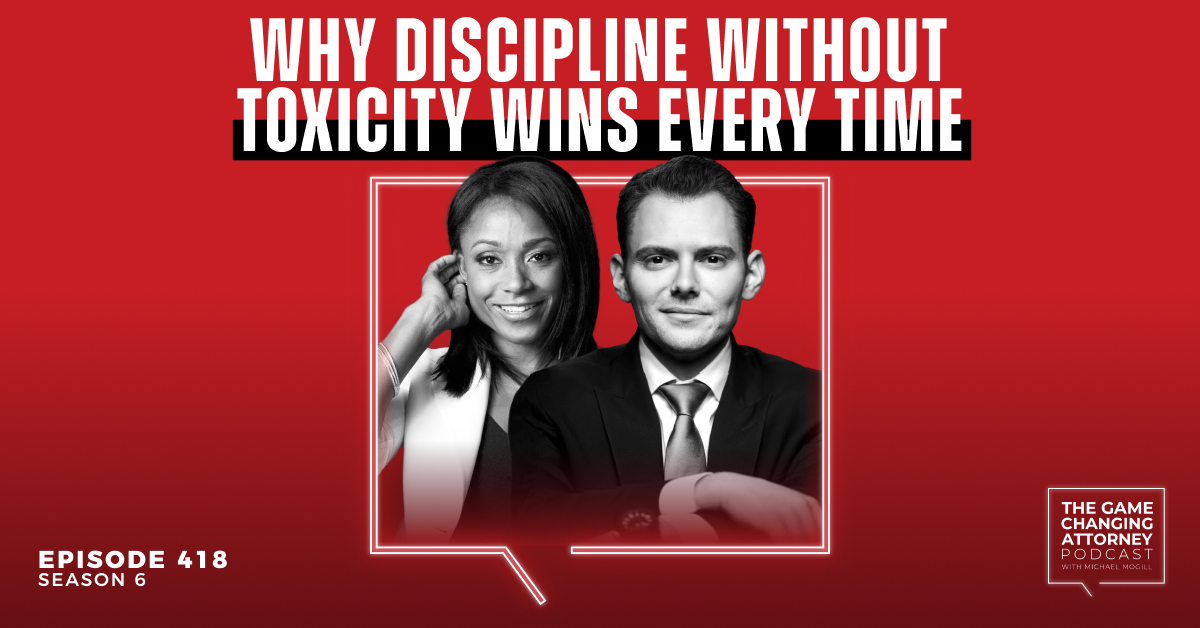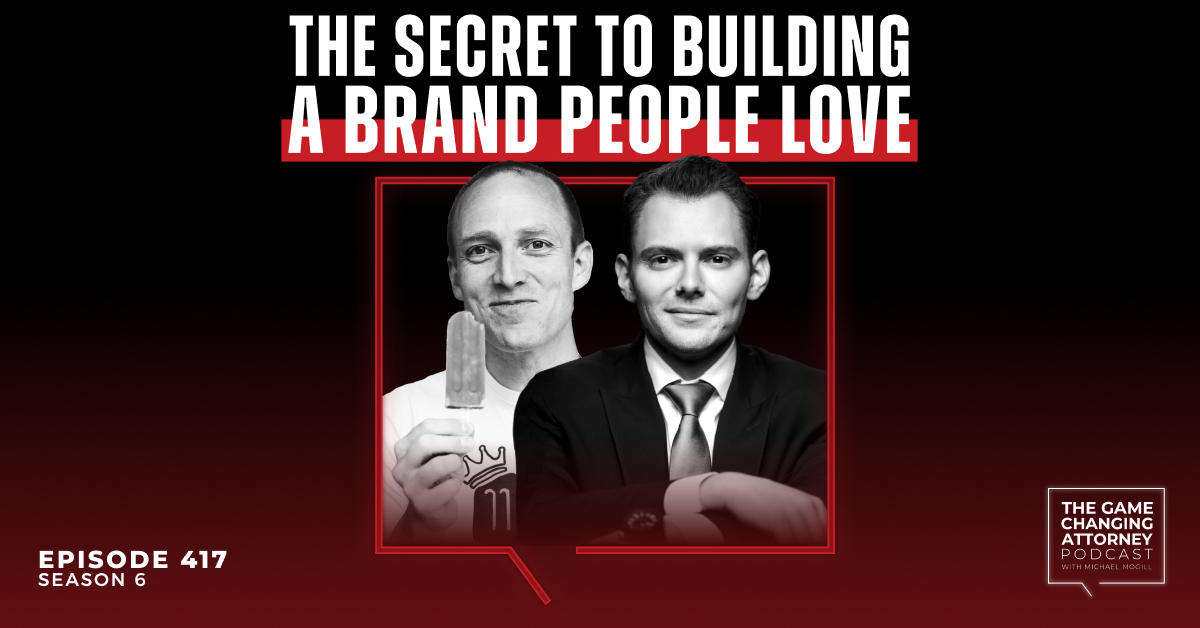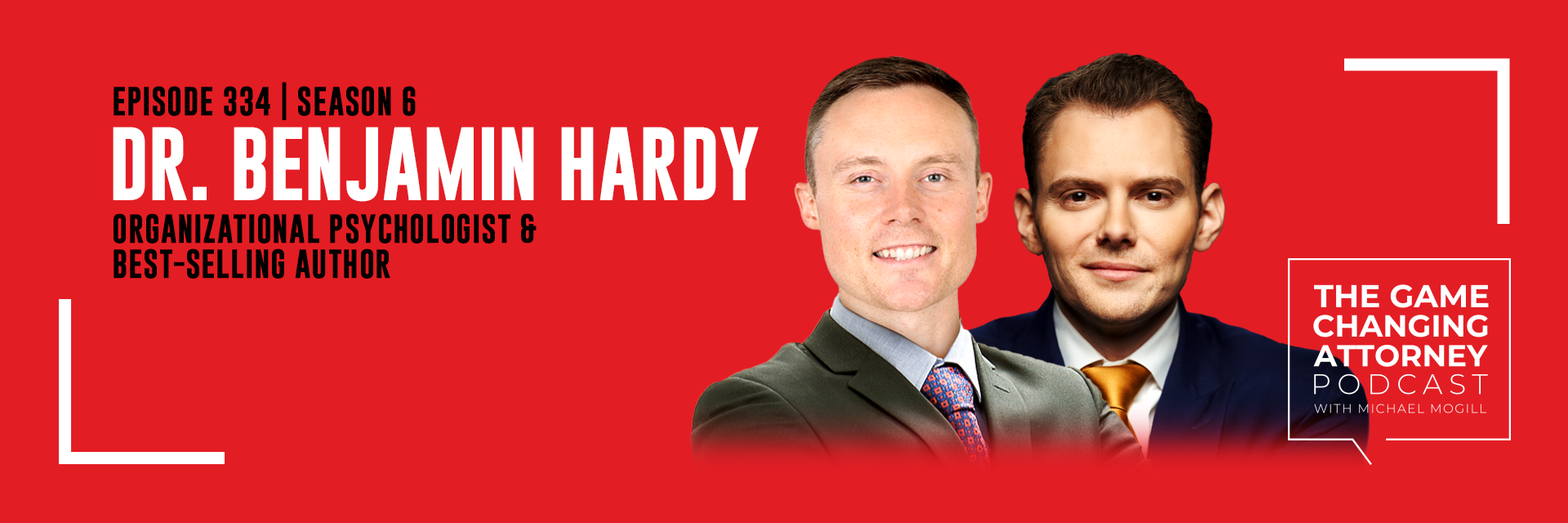
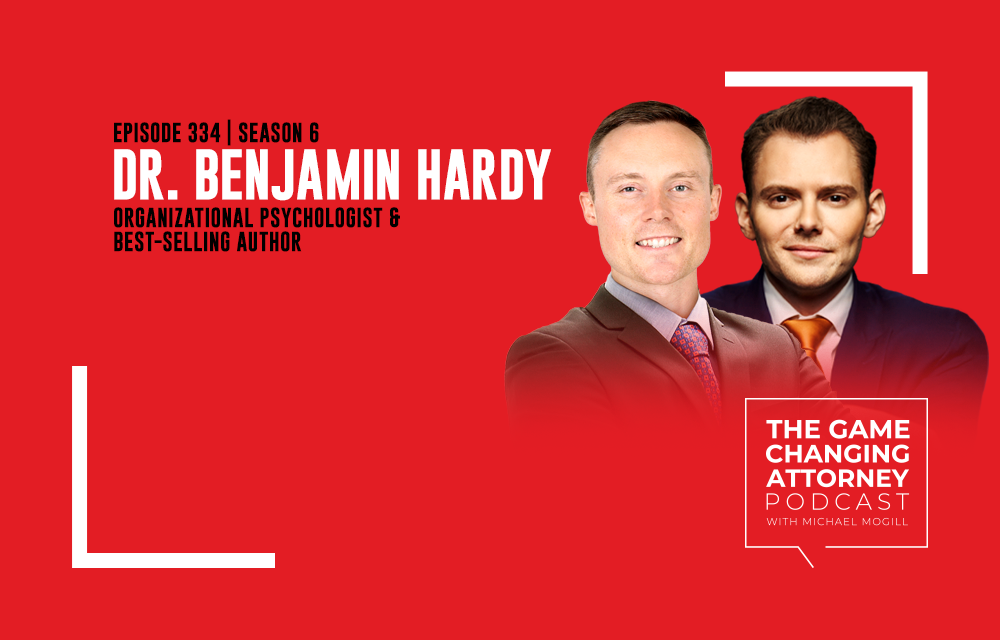
Episode 334 — Dr. Benjamin Hardy — From Limiting Beliefs to Limitless Potential: A Guide to Personal Growth
What does it take to completely shift your mindset and unlock the next level of personal and professional success?
In this episode of The Game Changing Attorney Podcast, Michael Mogill sits down with Dr. Benjamin Hardy — renowned organizational psychologist and best-selling author of Willpower Doesn’t Work and Personality Isn’t Permanent — to explore how to break free from self-imposed limitations and intentionally design a future of limitless potential.
Here’s what you’ll take away:
- How changing the way you see your personality and future goals can break you free from limiting beliefs that are holding you back
- Why emotional growth is the key to handling stress and turning challenges into opportunities
- The power of strategic ignorance and surrounding yourself with the right people to sharpen your focus and eliminate distractions
True transformation happens when you take control of your story — shaping your future to match your ambitions rather than letting circumstances define you. It’s not just about seeing things differently; it’s about rewriting how you interpret your past and setting the stage for the future you want. When you elevate your narrative, you shift from being reactive to becoming the driving force behind real change, opening doors to opportunities that align with your highest potential.
Listen & Subscribe
Show Notes:
Personality vs. identity. “Personality is more surface level, more internal. Identity is a lot more fundamental. Identity is how you see and describe yourself. For instance, personality is what’s exhibited on the outside. Personality is a person’s consistent attitudes and behaviors. So, if a person consistently shows up a certain way, that’s generally their personality.”
Becoming emotionally developed. “Emotional development means you’re willing to deal with your emotions, you’re willing to face them, you’re willing to handle them, and you become what’s called psychologically flexible. You learn how to actually go back and handle your emotions and also handle the emotions of the moment you’re dealing with. I know people who are listening to this are lawyers, so you’ve got to handle your emotions and become developed emotionally, or else you’re going to get blocked by a lot of life. Something stressful is going to happen and you’re just going to cave. So the more emotionally developed you are, the more you can actually frame the meaning of what’s going on. You can see this as, ‘This is happening for me. I can use this. What’s the best way to approach this?’ rather than, ‘This is too overwhelming. I’m just not going to deal with it. I’m going to space out.'”
Big changes are possible. “There are processes that successful people go through where they’re actually making really big progress on a monthly or on a quarterly basis, and they’re measuring that progress. So, I think if you have specific goals to improve yourself in certain ways, and you’re actually like regularly measuring and reporting those goals to other people — you’ve got accountability around that — you can make huge changes. You can go from someone who’s not very good with people or someone who’s really shy to someone who’s excellent at speaking with people, who’s excellent in a room. You can go from someone who’s not that great at writing and communicating to someone who’s excellent — if you’ve got really good goals, you’re invested in it, you’re educating yourself on it, and you’re regularly reporting and measuring your progress.”
The importance of new opportunities. “I think it’s important to have regular peak experiences, to have new opportunities, to put yourself in new situations, to see new realities — because what you’re currently imagining for your future is based on what you’re aware of. I think that’s another reason to learn a lot of things, read a lot of books, be around different, interesting people, and have new experiences — because then your perspective of what’s possible becomes altered.”
You are not your past self. “You’re not the same person you were in the past. If the current version of you was put in former situations that you were in, you would probably do things differently. I know I would handle the situation differently if I was put in former situations. When it comes to your past, it’s important to be empathetic. It’s important to be compassionate towards your former self and recognize that you don’t have to be the same person. But you also don’t have to be angry at your former self. Instead, you can actually just be understanding that they were coming from a certain place. They were in a different situation, and now you know things that they didn’t know, and you can do things differently as a result.”
Uncertainty is essential. “Uncertainty is essential because if you’re pursuing big goals or if you’re pursuing a big future, obviously there is uncertainty because you’ve never actually done it. But you have to get good with that, because that’s where freedom is. You either have uncertainty and freedom, or you have certainty and no options.”
Reframing negative experiences. “A lot of it has to do with coming up with a new version of your story, a new meaning, and then ultimately actively sharing that meaning, because a lot of your identity has to do with the story you tell about yourself — past, present and future — and it’s important to realize that the story you regularly tell about yourself is the way that you see yourself. So, if you take the time to look at former experiences and change the meaning of them, rather than viewing them as a negative, you actually look at all the positives that came from it. Then the next thing you would need to do is tell people the new version of that story. Next time someone talks to you about who you are and where you come from, rather than saying, ‘This is where I am, and this is why I’m the person I am,’ you actually frame it a different way.”
Small identity equals small future. “I would say for the majority of people it’s that whole idea of ‘urgent versus important.’ Most people are just stuck on the urgent, and maybe they’re still defined by negative traumas in their past that they haven’t reframed. So, their identity is pretty small — therefore, their future’s pretty small, and they’re still regretting former decisions rather than forgiving their former self and just moving forward and maybe educating themselves, learning, improving, and increasing their future.”
You are shaped by your environment. “Your input shapes your outlook. You’ve got to be really aware of the information and the people you’re around. The people you’re with are going to shape your personality. You know, if you’re an entrepreneur, you’re probably going to be around entrepreneurs. And if you want to be successful financially, you need to be around people who that’s just their normal mindset. That’s their goal, their values. So, you’ve got to be really aware of your environment — it is fully shaping who you are.”
Strategic ignorance. “You need to be smart enough to block off options. That’s part of why I think being an entrepreneur is awesome — because if you’re the visionary and the leader, you would need to hire people so that you don’t need to be aware of every decision being made. You can free your mind up to actually focus on the things that matter rather than having 1000 ping pong balls going off your head. Strategic ignorance is super important if you want to have high energy and clarity towards whatever you’re trying to focus on. If you’re trying to do too many things at once, you’re not ging to be able to make good decisions. You’re going to be in a state of decision fatigue, and it’s ultimately going to stop you from taking steps forward.”
Connect with Michael
- Text directly at 404-531-7691
